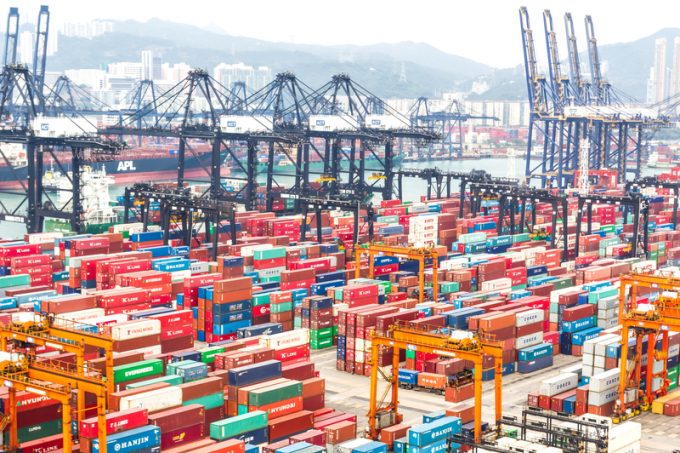Hong Kong drops out of world's top 10 busiest container ports
Hong Kong fell out of the world’s top 10 container ports last year, for the ...

Hutchison Ports Holdings Trust (HPH Trust) recorded a 6% year-over-year drop in throughput for 2016, and has warned of high levels of uncertainty for the year ahead.
The Singapore-listed unit of the global port operator that covers its Pearl River Delta terminals, saw total volumes fall to 22.5m teu, revenue drop 5.6% to HK$11.9bn (US$1.53bn) and operating profit decline 3% to HK$2.95bn ($380m).
In Shenzhen, throughput at Yantian International Container Terminals (YICT) decreased 3.9% to 11.7m teu compared with 2015. HPH Trust said this was primarily due to less transhipment cargo, although this was offset somewhat by US and EU trade growth.
“As a result of the strong rebound in economic activity in the US in the second half of 2016, supported by robust employment data, outbound cargo to the US escalated in the fourth quarter of 2016,” HPH Trust said in its 2016 financial statement.
“However, there remains a high level of uncertainty on the policy stance of the new US administration and its domestic and global ramifications on the US economy and trade in 2017.”
The company added there had been a moderate uplift in outbound cargo to Europe, but cautioned that weak consumer sentiment and high unemployment would hinder the pickup of European trade this year.
Hongkong International Terminals (HIT) saw throughput decline 6.2%, due to weaker intra-Asia and transhipment demand. HIT, in combination with HPH Trust’s additional Hong Kong terminals COSCO-HIT and Asia Container Terminals, handled around 10.8m teu.
Total volumes at the port of Hong Kong fell just 2.5% to 16.6m teu in 2016, prompting some analysts to suggest HPH’s weakening position.
“HPH Trust has been losing market share in Hong Kong, from 75.5% for 2015 to 71.0% for 2016,” OCBC Investment analyst Deborah Ong said in a research note, adding: “While we believe Hong Kong container throughput has turned a corner, we are slightly less optimistic on the extent of throughput growth HPH will enjoy.”
In December, HPH announced a formal collaboration with COSCO Shipping Ports on the management of their combined Hong Kong terminals.
HPH said this would create additional capacity by increasing flexibility in berth and yard planning, adding that the partnership was as a “confident response to the changing dynamics of the global shipping industry”.
Outlining the challenges it faces from the structural changes taking place in liner shipping, HPH said the service rationalisation of the global container shipping alliances had negatively impacted transhipment volumes of both HIT and YICT in 2016.
“Shipping lines continue to deploy mega-vessels to achieve economies of scale and reform their carrier alliances to improve efficiency, control costs and enhance competitiveness,” HPH said.
According to Jonathan Beard, Asia head of transportation and logistics at Arcadia, as global port competition heats up more terminal collaborations are likely to take place as it is a “strategy to help ‘lock in’ key customers and secure volumes”.
“The COSCO tie-up should help stabilise HPH volumes, but the other carrier alliance partners also play a role in port and terminal choice,” he added.
Comment on this article